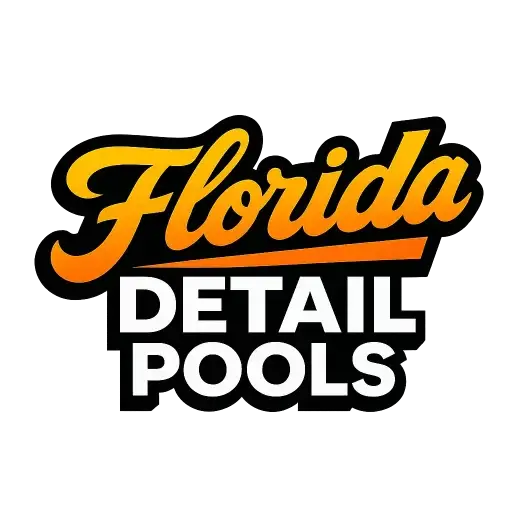Saltwater Pool Maintenance Tips Every North Port Homeowner Should Know
Saltwater pools are quickly becoming a favorite among homeowners in North Port, Punta Gorda, and Charlotte County. They provide a softer swimming experience, reduce harsh chemical smells, and are easier on skin and swimsuits compared to traditional chlorine pools. But while many pool owners believe saltwater pools are “low-maintenance,” the reality is that they still require consistent care to stay in perfect balance.
In this guide, we’ll share the essential tips for maintaining saltwater pools in North Port, along with insider advice on avoiding costly repairs and keeping your water sparkling year-round.
1. Check Salt Levels Weekly
The heart of a saltwater pool is the salt chlorine generator (SCG), which uses electrolysis to turn salt into chlorine. This process provides a steady, gentle chlorine supply, but it only works when salt levels are correct.
Ideal range:
- 2,700–3,400 ppm (always confirm with your manufacturer).
- Too low: insufficient chlorine → unsafe swimming water.
- Too high: risk of corrosion to heaters, fixtures, and pool surfaces.
💡 Pro Tip: Test salt levels at least once a week using a digital tester for accuracy. Always use pool-grade salt, never table salt, when adjusting levels.
👉 Learn more about why consistent pool service in North Port matters for keeping chemistry in check.
2. Clean Salt Cells Regularly
The salt cell (electrolytic cell) is the core component of your SCG. Over time, calcium deposits and scale buildup can reduce its ability to produce chlorine.
Signs your salt cell needs attention:
- “Low chlorine” error messages.
- Cloudy or green water despite proper salt levels.
- White scale visible on the plates.
Maintenance routine:
- Inspect every 2–3 months.
- Clean with a mild acid solution when buildup is visible.
- Avoid over-cleaning, which reduces the cell’s lifespan.
⚠️ A well-maintained salt cell lasts 3–7 years, but neglect can cut that in half—replacement costs run from \$500–\$1,200.
3. Monitor pH and Alkalinity
Saltwater systems naturally push pH upward due to the electrolysis process. Left unchecked, high pH causes cloudy water, scaling, and poor chlorine effectiveness.
Target ranges:
- pH: 7.2–7.6
- Alkalinity: 80–120 ppm
Best practices:
- Test water weekly, especially after storms.
- Add muriatic acid or sodium bisulfate to lower pH when needed.
- Keep alkalinity stable to prevent large pH swings.
Balancing these two elements ensures both swimmer comfort and equipment protection.
4. Inspect Equipment Frequently
Saltwater can be slightly more corrosive than traditional pools, particularly when chemistry is neglected. That makes routine inspections essential.
Key areas to check:
- Pumps and filters: Watch for leaks and debris buildup.
- Heaters: Salt can corrode heat exchangers.
- Surfaces: Look for etching, scaling, or discoloration.
- Metal fixtures: Ladders, rails, and lights are prone to rust.
👨🔧 Professional pool services often apply protective coatings and catch early corrosion before it spreads.

5. Shock Your Pool Periodically
Even though your SCG produces chlorine, it doesn’t always destroy all contaminants. Regular shocking helps eliminate chloramines, bacteria, and algae spores.
When to shock:
- After a storm or flooding.
- Following a pool party with heavy use.
- If water turns cloudy or develops a strong odor.
- At least once per month as preventive care.
Best practice:
- Use non-chlorine shock (potassium monopersulfate) for regular upkeep.
- Use chlorine shock only for severe contamination.
Extra Tips for North Port Saltwater Pools
- Run the pump 8–12 hours/day in summer to ensure circulation and proper chlorine distribution.
- Use a pool cover to keep debris out and protect chlorine from UV rays.
- Maintain stabilizer (CYA) at 30–50 ppm—too low burns chlorine off, too high causes “chlorine lock.”
- Hire a weekly service to manage chemistry and inspect equipment consistently.
Why Professional Saltwater Pool Service Pays Off
Many North Port homeowners start with DIY care but quickly discover saltwater pools are more complex than expected. Partnering with a trusted company like Florida Detail offers:
- ✅ Precise water testing with professional equipment.
- ✅ Extended equipment life thanks to regular inspections.
- ✅ Time savings and stress-free ownership.
- ✅ Lower long-term costs by avoiding major repairs.
👉 See how professional weekly pool service in Charlotte County helps protect saltwater pools year-round.
Why Consistency Matters
Skipping maintenance may seem harmless, but even a few weeks of imbalance can lead to:
- Corroded heaters and pumps.
- Scaling on pool surfaces.
- Cloudy, unsafe water.
- Expensive repairs or replacements.
Just like filters are the heart of your pool system (see these filter cleaning hacks), saltwater pools rely on routine balance to perform at their best.
Final Thoughts
Saltwater pools provide an incredible swimming experience, but they require consistent care to stay balanced and safe. By checking salt levels weekly, cleaning salt cells, monitoring pH and alkalinity, inspecting equipment, and shocking periodically, you’ll protect your investment and enjoy crystal-clear water every day.
For North Port homeowners, combining smart DIY care with professional weekly service is the best way to maximize pool performance and minimize costs.
Call to Action
🌊 Keep your North Port saltwater pool perfectly balanced and worry-free.
👉 Book professional weekly saltwater pool service with FloridaDetail.com today!
🔗 Bonus Tip: For more smart living and maintenance guides beyond pool care, visit UnlimitedManiac.com.
